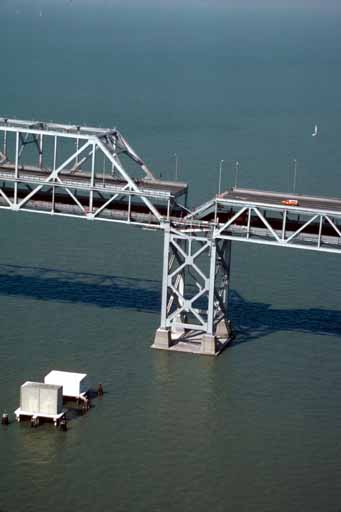Since my desktop blew up yesterday, I've been living completely in the cloud for the first time since getting my CR-48. Being on the internet was more important than troubleshooting my boot drive, and this seemed like the test my netbook had been waiting for - not just a road trip or weekend of working away from the desk, but full-on mission criticality.
It's not working. I don't blame the netbook itself for this, or even the vision of cloud computing; despite all the flaws, I still like that approach and a lot of my day-to-day work is already in the cloud. The barrier: speed. Even with Wifi-N and a reasonably nippy home connection, everything feels slow and clunky in the way of Windows 95. True, I can blow things up or run out of battery, plug back in, and pick up to within 30 seconds of where I left off. But between the demands of flash and the limitations of typical network speeds, everything feels painfully slow - as I type this, I am typically half a sentence ahead of the computer, and every time I stop to read back what I wrote, it looks as if someone else is still writing it. Being in the cloud was only liberating while I had the rock of my desktop to land on when the time came.
Google owns a little of this problem; although there is a user-friendly Chrome web store and development on the Chromebooks continues apace, very few of the applications are able to function absent an internet connection, and many of the 'apps' - even those published by Google itself - are no more than a link to the existing browser page. News, Groups, and Reader, where I do the bulk of my media consumption, feel clumsy; not enough design to be ergonomic, not customizable enough to suit hacking. Gmail, Docs and Calendar are more pleasant to use, but have no offline component - so if you're stuck somewhere without access to the internet, or simply want to work without distractions, then you're reduced to bare-bones notepads or a few programmers' tools. This isn't a very fair criticism, because it's not Google's fault that most people don't have access to fast internet outside of a work campus.
If Google is serious about developing Chrome as a fully-fledged operating environment rather than just a faucet for the firehose, then it has to solve the local deployment problem and handle connectivity variations seamlessly and transparently. A computer that stops working when the bus or train you're on goes through a tunnel is not the answer. Yes, we should have high speed broadband everywhere, and our infrastructure is sorely lacking. But that's a Big Problem, and one that will take a lot longer to solve than users of thin clients like the Chromebook are prepared to wait.
I'm seriously looking at switching to a tablet such as the iPad or one of the increasingly many Android Honeycomb devices. Even when I lose signal on my phone, my apps still work. There's another reason: 80% of what I read and write is oriented like a page, whether I like it or not. On a netbook where the browser is the desktop, a good 30-40% of every page is empty whitespace. Few designers are alive to the possibility that I might want to look at two pages at once, rather than scroll up and down all the time. Increasingly, I just want to turn my computer on its side.

No comments:
Post a Comment